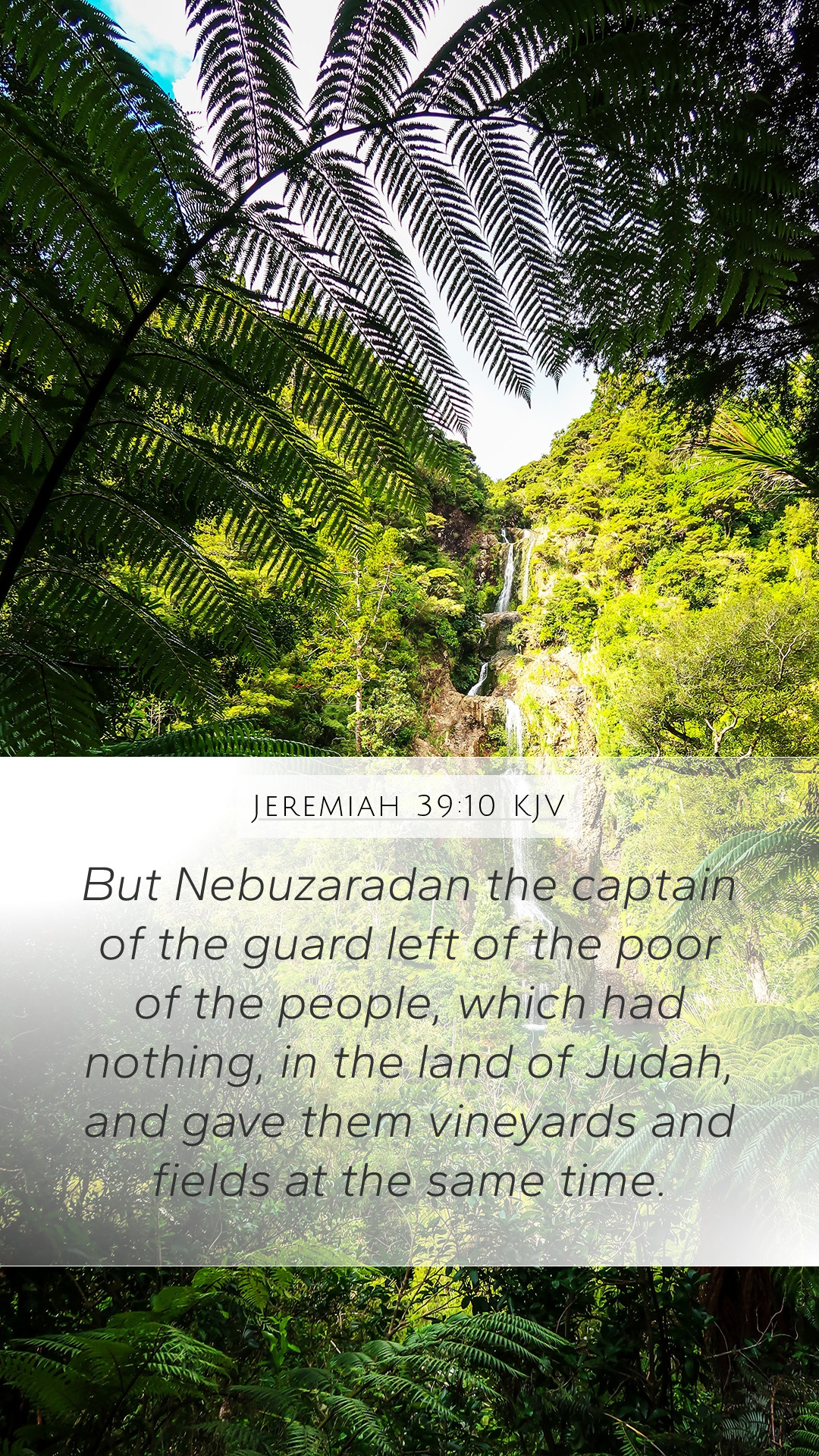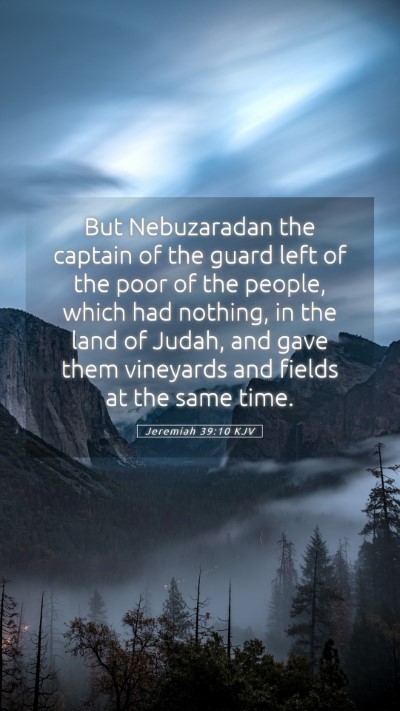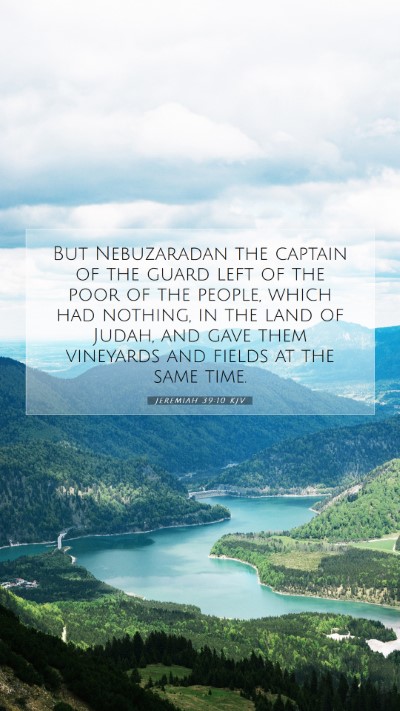Understanding Jeremiah 39:10
Jeremiah 39:10 states: "But Nebuzaradan the captain of the guard left of the poor of the people, which had nothing, in the land of Judah, and gave them vineyards and fields at the same time." This verse conveys a powerful message regarding God's providence and the mercy extended even amidst judgment. In this exposition, we will combine insights from notable public domain commentaries to enhance our understanding of this scripture.
Contextual Background
Jeremiah prophesied during a tumultuous period in Israel's history, particularly surrounding the Babylonian siege of Jerusalem. As we delve into the interpretation of this verse, it is essential to recognize the historical context. Jeremiah 39 recounts the fall of Jerusalem and the subsequent actions taken by King Nebuchadnezzar and his officials.
Insights from Commentaries
-
Matthew Henry's Commentary:
Henry notes the significance of noting who was spared during this distressing event — the poor and those with nothing to lose. This act reflects God's continued care for the downtrodden. Henry emphasizes the notion that even in the face of national calamity, God provides for those in need, showcasing divine mercy amid severe judgments.
-
Albert Barnes' Notes:
Barnes highlights that the captain of the guard’s act of leaving the poor indicates God’s larger plan. It demonstrates that while much of Jerusalem faced destruction, those with humbled hearts and simple means were preserved. This serves as a reminder of God's concern for the less fortunate, often overshadowed by the powerful and affluent.
-
Adam Clarke's Commentary:
Clarke adds that the poor of the land were often those who had the most faith in God. They represent the remnant that would ultimately endure the hardships yet find solace in God's promises. Clarke also stresses that though they lost their homes, they were granted fields and vineyards, symbolizing a restoration of hope and regeneration amidst despair.
Key Themes in Jeremiah 39:10
-
The Theme of Divine Mercy:
This verse exemplifies how, even when judgment falls, God remembers His people. It reinforces the notion that God's mercy is not limited to the righteous but extends to the humble and needy.
-
Spiritual Provision:
The vineyards and fields given to the poor illustrate God's provision. It highlights that, in the emptiness and ruin, God can still provide abundance and new beginnings, linking to broader themes of hope throughout scripture.
-
God's Sovereignty:
The action of Nebuzaradan, though seemingly man-initiated, serves God's purposes, underscoring that God is orchestrating events for His glory and the eventual good of His people.
Application for Today
As we reflect on Jeremiah 39:10, we are prompted to consider how we can embody the spirit of provision and care for the marginalized in our communities. The notion that God cares for the poor should inspire us in our own outreach efforts. Furthermore, understanding this verse invites us to trust in God's provision during times of personal or collective struggles. Just like the poor left in Judah, we can find hope in the emptiness.
Cross References
- 2 Kings 25:12: Similar account highlighting the fate of the people left after the Babylonian siege.
- Isaiah 61:1: The proclamation of good news to the poor, resonating with the message of care for the needy.
- Lamentations 3:22-23: A reflection on God's mercies being new every morning, aligning with the hope demonstrated in Jeremiah 39:10.
Conclusion
In conclusion, Jeremiah 39:10 serves as a profound reminder of God's continued mercy and provision, even during the bleakest of times. By encapsulating the insights from various commentaries, we gain deeper biblical understanding and appreciation for God's ways. For those engaging in bible study groups, this verse can provide a rich topic for discussion and reflection on how God interacts with humanity both historically and in our lives today. Through online Bible study or personal study, this verse points us toward understanding not just the text but the profound truths of God's character and His care for those who are often overlooked.


